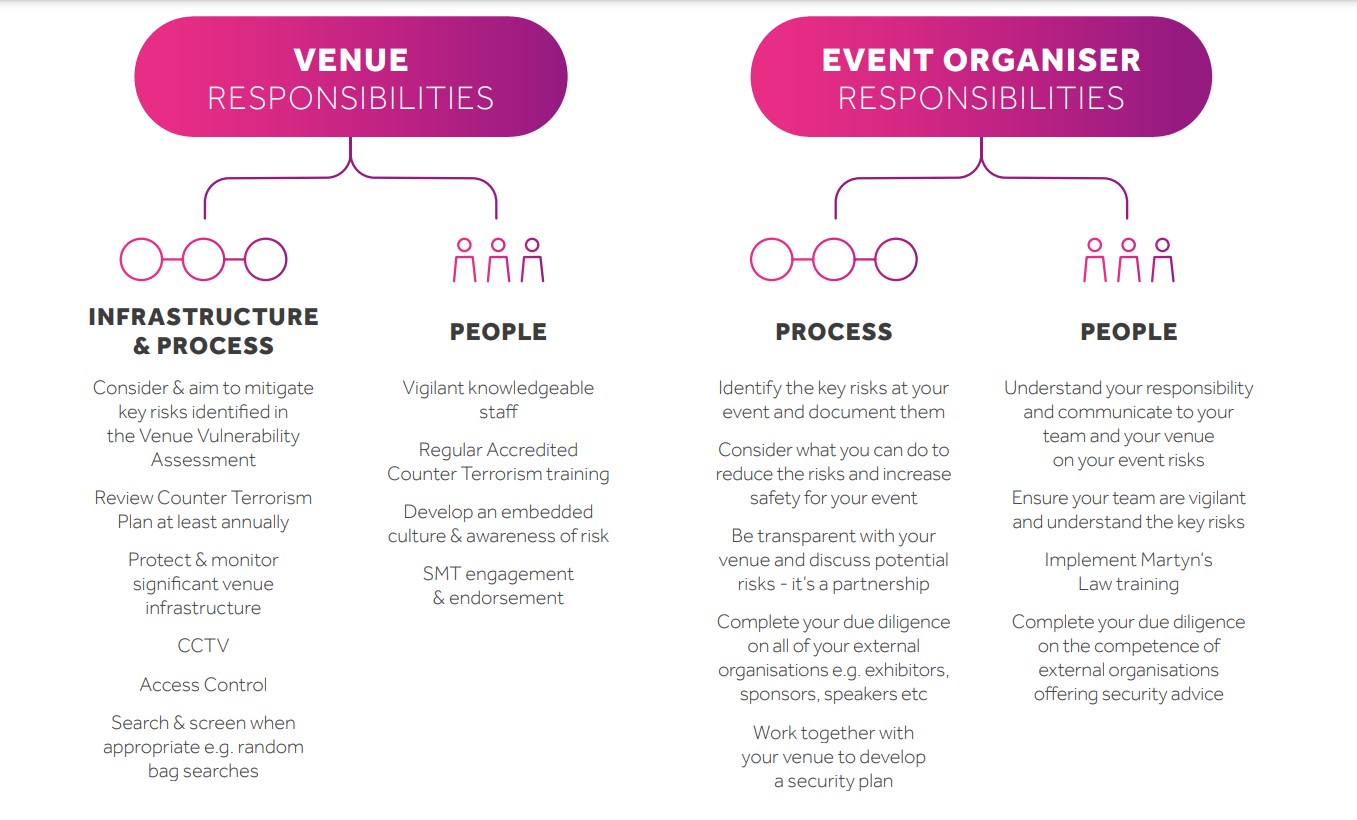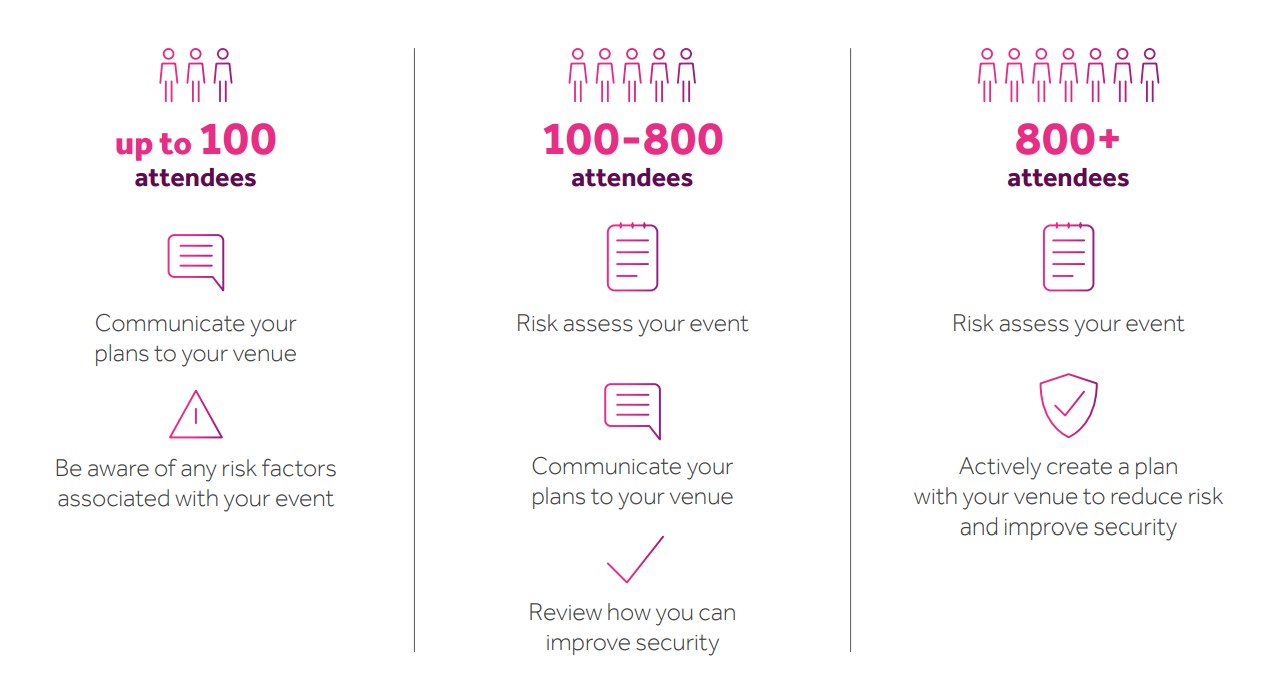By Emily Wallin.
Guidance for event organisers has been produced ahead of the introduction of Martyn’s Law this spring.
ICC Wales hosted a free masterclass to set out the expected responsibilities for organisers and venues under the new anti-terror legislation.
Martyn’s Law legislation will formalise the responsibilities and actions that publicly accessible locations must take to mitigate the risk of a terrorist attack. The new law, also known as Protect Duty will be introduced this spring following the campaign spearheaded by Figen Murray, whose son Martyn Hett was killed in the Manchester Arena bombing.
ICC Wales has lead work to educate the events industry on Martyn’s Law, creating educational resources including its Protect Duty report, delivering informative sessions at industry trade shows and launching the Protect Duty Events Industry Group.
Hosted by ICC Wales’ sales director, Danielle Bounds and director of the Association of Event Venues (AEV), Rachel Parker, the webinar gave attendees an overview of Martyn’s Law and its potential impact on their events and provide them with ways to work in partnership with venues to ensure their events are as safe as possible.
During the masterclass, Bounds advised organisers to be specific in their risk assessments and make sure they kept documentation to show identified risks.
She said: “It is best to be prepared and know as much as you can. Risk assessments cannot be dusted off event to event. They have to be event specific. Nobody likes saying they are vulnerable but if you know where you are vulnerable you reduce your risk.”
All events with capacity for more than 100 attendees will require a risk assessment under the law.
The government has not yet specified the exact duties under the law, but during the session Bounds and Parker discussed which responsibilities would be likely to fall to venues and which to organisers.
The division of responsibilities

Organisers they said would be expected to identify risks in relation to speakers, royal visitors, politicians, exhibitors and sponsors and conference content.
They added: “Certain trade fairs encourage fan engagement and dressing up to participate in the Show which means that their true identities are disguised, and this can pose a risk. Add into the mix the use of replica weapons and actual weapons such as machetes for sale (despatched after the show), which is another risk, this clearly demonstrates the need for effective communication between Event Organiser and Venue to manage and mitigate risk.”
Subjects that are considered as potentially controversial to some sections of the population and could be a potential risk for protesters and other high risk activity, include:
1) Climate change
2) Politics
3) Racism
4) Sexism
5) Religion/atheism
6) Abortion
7) Capital punishment
8) Human rights
9) Censorship and freedom of speech
10) Extremism
11) Covid vaccines
12) Genetic engineering
13) Animal testing
14) Animal welfare
15) Abuse
Assessment
Different levels of assessment will be required depending on the size of the event, as shown below.
A template for creating a risk assessment can downloaded here.
















